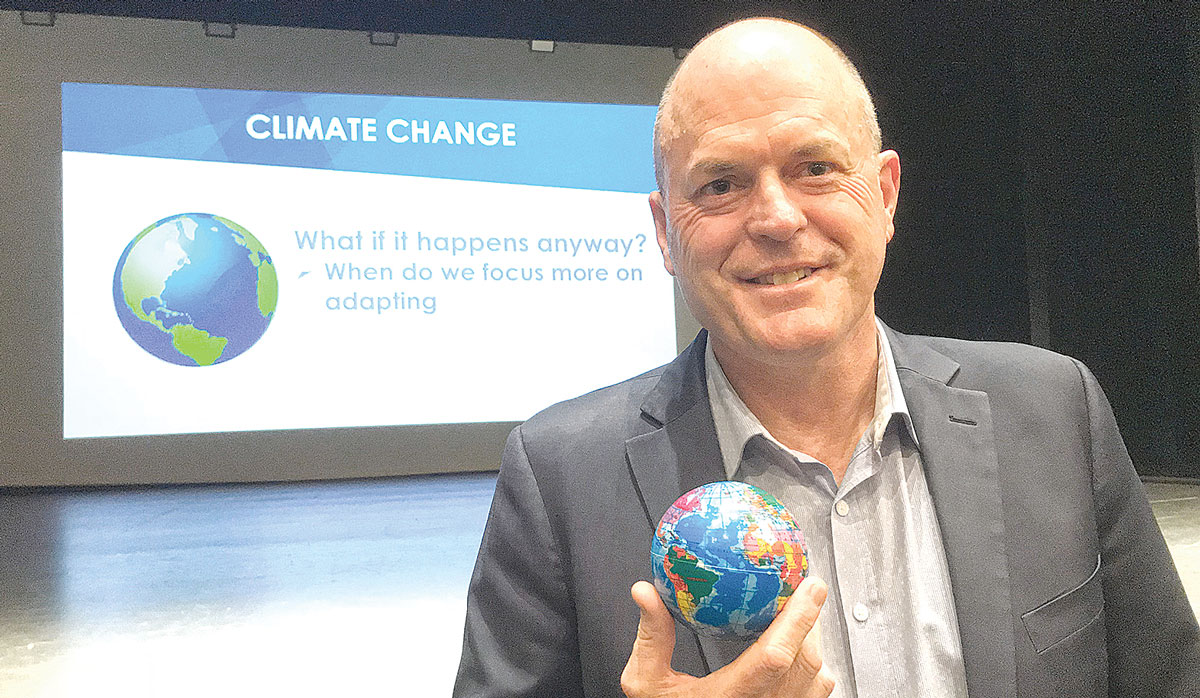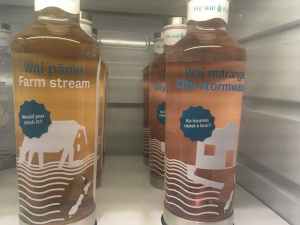Debate over Te Papa’s controversial exhibition on water quality has farmers continuing their criticism and the museum defending its stance.
The exhibition depicts the quality of water in various places – such as farm streams, lakes and harbour – in bottles which are artificially coloured to show what the museum claims is colour of the water in these places. It also has an interactive display where people can supposedly improve the environment by touching a screen which says ‘less cows’.
National’s spokesperson on agriculture, Todd Muller has accused the Te Papa of oversimplifying the complex issue of water quality and walking away from science in its exhibition.
“What I am seeing is predetermined view that there should be less agriculture, less dairy and that the NZ future lies in it being less dependent on agriculture. I reject that premise, which is coming from the government and its infusing our museum,” he says.
But Te Papa’s Kate Camp claims the exhibition content is based on various science and research papers – including a report on NZs freshwaters values, state, trends and human impact, by Sir Peter Gluckman, the Prime Minister’s chief science advisor in 2017. She concedes the museum didn’t consult any groups or individuals about the accuracy of its exhibition.
Camp says Te Papa’s challenge is to take a complex and varied picture, and present it in a simple, easy-to-understand way, that is still true to the overall picture.
“We can’t be an encyclopaedia that presents the full complexity of an issue,” she told Rural News. “But we can spark interest and get people thinking and talking. We hope that our visitors will seek out more information and make changes in their own lives to help protect the environment.”
 |
|---|
|
National’s spokesperson on agriculture, Todd Muller has accused Te Papa of oversimplifying the issue of water quality.
|
Camp says there is ‘very clear evidence’ that farming has an impact on our waterways, along with other activities, and that’s what the exhibition shows. However, she acknowledges there are many farmers and organisations that are caring for waterways.
Federated Farmers Vice President, Andrew Hoggard says the risk of dealing with a complex subject, such as water quality, so that more people – including children – understand it; is that it becomes too simplistic.
“The problem is that people often draw the wrong conclusions,” he says.
Hoggard says life is complex and the water is very complex. He says it is no good pretending that every farm stream is crystal clear, because it isn’t.
However, Hoggard says it’s far too simplistic to label every farm stream as being in some way polluted.




















